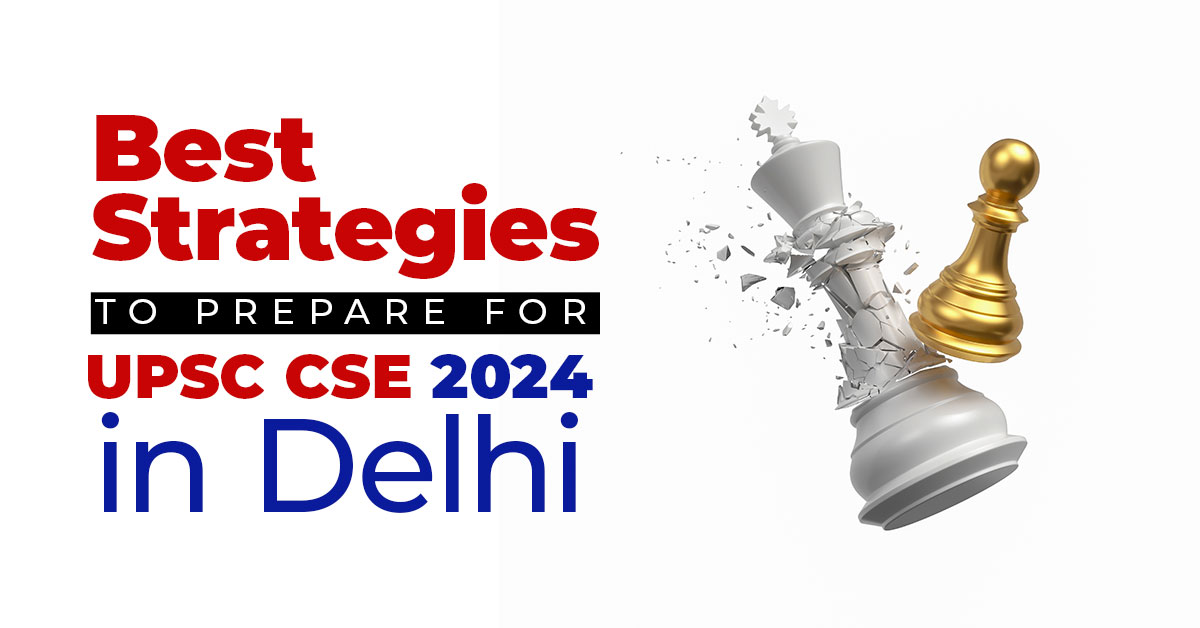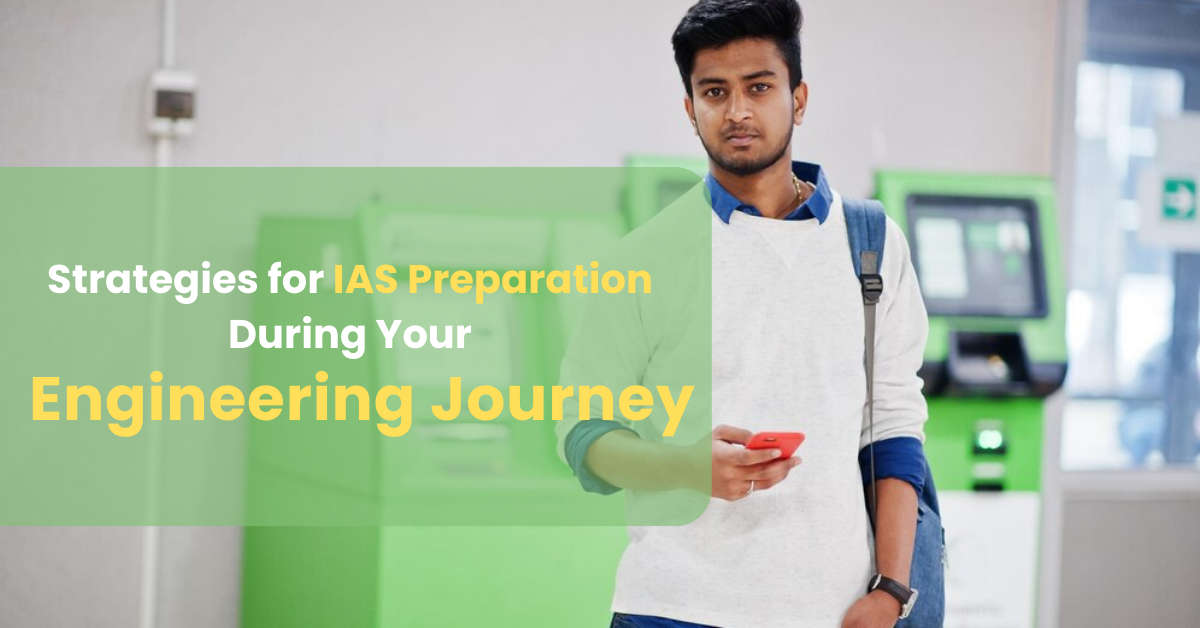Choosing the right answer in an interview for the Indian Administrative Service (IAS) can be daunting. Knowing the common questions asked and how to tackle them can help reduce your stress when it comes to the interview stage. This blog will provide a comprehensive list of commonly asked IAS interview questions, as well as insight into potential answers curated by the mentors of the best IAS Coaching Institutes in Delhi. It will also discuss strategies to prepare for these interviews and advice on how to best answer each question. Vacancies for the IAS are announced every year by the Union Public Service Commission (UPSC). Over 50,000 candidates apply to fill these vacancies. The UPSC is responsible for recruiting officers for the central government of India.
Table of Contents
- Overview
- Interview Questions and Answers
- What is an IAS Interview?
- Required Educational Qualifications
- Types of Questions – What to Expect
- Preparation Tips
- Conclusion
Overview
The IAS interview is a personality test aimed at assessing the suitability of the candidate for the job. The interview panel comprises experienced bureaucrats, academicians, and experts from different fields. The questions can be from a wide range of topics, including current affairs, history, geography, economics, and politics. The interview panel looks for traits like leadership qualities, decision-making skills, critical thinking, and communication skills in the candidate.
Interview Questions and Answers
Question: Tell us about yourself?
Answer: This is a standard question asked in most interviews, and the IAS interview is no exception. The panel wants to know about your background, education, and work experience. You can start by introducing yourself, highlighting your achievements and experiences, and explaining how they have prepared you for the IAS.
Question: Why do you want to join the IAS?
Answer: The panel wants to know about your motivation to join the IAS. You can explain how the IAS provides an opportunity to serve the country, make a difference in people’s lives, and contribute to the development of the nation. You can also mention your passion for public service and your willingness to take up challenges.
Question: What inspired you to become an IAS officer?
Answer: My interest in public service and my passion for making a difference in society motivated me to pursue a career as an IAS officer. The opportunity to work closely with people, understand their problems, and implement policies that positively impact their lives is what drew me towards this role.
Question: How do you plan on addressing corruption and promoting transparency in your role as a civil servant?
Answer: As a civil servant, I believe in leading by example. I plan on conducting myself with utmost integrity and ensuring that those around me do the same. Additionally, I will work towards implementing policies and procedures that promote transparency and accountability within my department.
Question: What are some challenges you anticipate facing as a civil servant and how do you plan on overcoming them?
Answer: One major challenge is the tendency for bureaucracy to slow down progress. To overcome this, I plan on streamlining processes wherever possible while still adhering to necessary regulations. Another challenge is dealing with political pressure or interference; in these situations, I will prioritize serving the best interests of the community over any individual or party agenda.
Question: What are your views on India’s current economic situation?
Answer: India’s economy has undoubtedly made significant progress over the last few years. However, there are still some areas where we need improvement. The government’s focus on increasing foreign investments by creating a conducive environment for businesses is commendable. We also need to focus on reducing poverty, improving access to education and healthcare services, supporting small businesses and entrepreneurs, and creating employment opportunities for our youth. It is crucial that we strike a balance between promoting economic growth while addressing social inequalities.
Question: What is your opinion on the current state of Indian politics?
Answer: This question tests your knowledge of current affairs and your analytical skills. You can start by giving an overview of the current political scenario and then express your opinion on the government’s policies and programs. You can also mention the challenges facing the country and suggest possible solutions.
Question: How do you handle stress and pressure?
Answer: This question tests your ability to handle challenging situations. You can explain your coping mechanisms, such as meditation, exercise, or talking to friends and family. You can also mention how you prioritize your work, delegate tasks, and manage your time effectively.
Question: What is your opinion on the reservation system in India?
Answer: This question tests your understanding of social issues and your ability to take a stand. You can explain the rationale behind the reservation system and its impact on society. You can also mention the challenges and criticisms of the system and suggest ways to make it more effective.
Question: What is your opinion on the role of the media in society?
Answer: This question tests your understanding of the media and its role in shaping public opinion. You can explain the importance of a free and independent media and how it helps in keeping the government accountable. You can also mention the challenges facing the media, such as fake news, bias, and censorship.
Question: What are your thoughts on the caste system in India?
Answer: This question tests your understanding of social inequality and your ability to take a stand. You can explain the history and origins of the caste system and its impact on society. You can also mention the challenges and criticisms of the system and suggest ways to eradicate it.
Question: What is your opinion on the state of education in India?
Answer: This question tests your knowledge of the education system and your ability to suggest reforms. You can explain the challenges facing the education system, such as poor infrastructure, lack of funding, and quality of teachers. You can also suggest ways to improve the system, such as increasing funding, improving teacher training, and introducing innovative teaching methods.
Question: What is your opinion on the state of education in India?
Answer: This question tests your knowledge of the education system and your ability to suggest reforms. You can explain the challenges facing the education system, such as poor infrastructure, lack of funding, and quality of teachers. You can also suggest ways to improve the system, such as increasing funding, improving teacher training, and introducing innovative teaching methods.
Question: How would you handle a situation where your superiors ask you to take actions that go against your values or ethics?
Answer: As an IAS officer, it is my responsibility to uphold the law and maintain integrity at all times. In such situations, I would communicate my concerns respectfully but firmly with my superior and try to find a solution that aligns with both our goals while maintaining ethical standards. If the situation cannot be resolved mutually, then I would follow the proper channels of communication within the government system while staying true to my values.
Question: Can you give an example of a challenging situation you faced as an administrator?
Answer: One of the most challenging situations for me was when I had to manage relief operations during natural disasters like floods and earthquakes. The limited resources available coupled with logistical difficulties made it a high-pressure situation. However, through effective planning and coordination with different agencies involved, we were able to provide timely assistance to affected communities. This experience taught me valuable lessons in crisis management and leadership skills.
What is an IAS Interview?
An IAS interview is a crucial step in the selection process for candidates who aspire to become Indian Administrative Service (IAS) officers. It is a rigorous and comprehensive evaluation of the candidate’s knowledge, personality, and suitability for the job. The interview panel comprises experienced bureaucrats and experts who assess the candidate’s performance based on various parameters such as their communication skills, analytical ability, leadership potential, ethical values, current affairs knowledge, and overall demeanor.
During an IAS interview, candidates are likely to face questions related to their academic background, work experience (if any), career aspirations, personal interests and hobbies. They may also be asked about their views on national issues such as corruption, poverty alleviation measures or foreign policies. The interviewer may test the candidate’s mental agility by asking unexpected or hypothetical questions that require situational analysis or problem-solving skills.
It is crucial for candidates to prepare well for an IAS interview by researching about the profile of an IAS officer and staying updated with current news and events and taking proper guidance from the best civil services coaching centers in Delhi. They should practice speaking confidently with clarity and conviction while maintaining composure under pressure. Honesty, integrity and a positive attitude are some essential traits that can create a favorable impression during an IAS interview. Ultimately it’s how you present yourself that makes all the difference in cracking this tough nut of an interview!
Related Qualifications
When it comes to cracking the IAS interview, having a strong educational background is essential. The interview panel wants to assess whether you have the necessary qualifications and knowledge to perform effectively as an IAS officer. In addition to your academic qualifications, certain related qualifications can also give you an edge over other candidates.
One such qualification is proficiency in a regional language. Since IAS officers are required to work closely with people from diverse backgrounds, knowing a local language can be extremely advantageous. Another related qualification that could boost your chance of success is prior experience in public service or social work. This shows that you already have some understanding of governance and the issues faced by people at grassroots levels.
Overall, while core educational qualifications cannot be overlooked; having additional related qualifications can help set you apart from other applicants and showcase your suitability for the role of an IAS officer.
Types of Questions: What to Expect
The IAS interview is one of the toughest interviews to crack, and a large part of it involves answering different types of questions. The first type of question you can expect in an IAS interview is factual. These questions are designed to test your knowledge on current affairs, history, geography, etc. They may ask you about recent events or about a particular topic that you wrote in your application.
Another type of question that you may encounter in an IAS interview is hypothetical. These questions will usually start with “what if” or “suppose.” Hypothetical questions are designed to test your problem-solving skills and ability to think on your feet. Be sure to take some time before answering these types of questions and try not to get flustered.
Finally, behavioral or situational questions may also be asked during an IAS interview. These types of questions aim at assessing how well you would perform in certain situations like leading a team under pressure or dealing with conflict among employees. Its essential here to provide specific examples from your experience that demonstrate how you handle such situations effectively while highlighting key qualities like leadership, adaptability, teamwork etc., making it clear why they make the best candidate for the job.
Preparation Tips
One of the most important aspects of any interview is preparation. This is especially true for the IAS interview, where candidates will be questioned on a variety of topics ranging from current affairs to personal opinions. To prepare for this, it is advisable that candidates research and read extensively on current events and related topics.
Another crucial aspect of preparation involves practicing mock interviews conducted by the best UPSC Coaching Institutes in Delhi. This can help candidates get a feel for how the actual interview might proceed and allow them to identify areas where they need improvement. In addition to this, it is also important that candidates review common IAS interview questions and answers so as to be better equipped to handle similar questions during the actual interview.
Lastly, grooming and dressing appropriately can have an impact on one’s overall confidence during an interview. Candidates should dress formally in traditional Indian attire or western business attire depending upon their comfort level while keeping in mind certain guidelines regarding color choices and patterns. Additionally, they should also maintain good hygiene and carry themselves with poise throughout the entire process.
Conclusion: Acing the Interview
In conclusion, acing the interview for any job requires preparation, confidence, and clear communication. For IAS interviews specifically, it’s important to be well-versed in current affairs and have a good understanding of India’s political system. Familiarize yourself with common IAS interview questions and practice your responses beforehand. Don’t hesitate to ask for feedback and guidance either from friends or mentors of the best IAS Coaching Centers in Delhi.
During the actual interview, maintain eye contact with the interviewer(s) and stay calm under pressure. Be sure to speak clearly and concisely while providing examples and explanations where necessary. Finally, don’t forget to show enthusiasm for the position and express gratitude for the opportunity to interview. With these tips in mind, you’ll be well on your way to acing your IAS interview!




